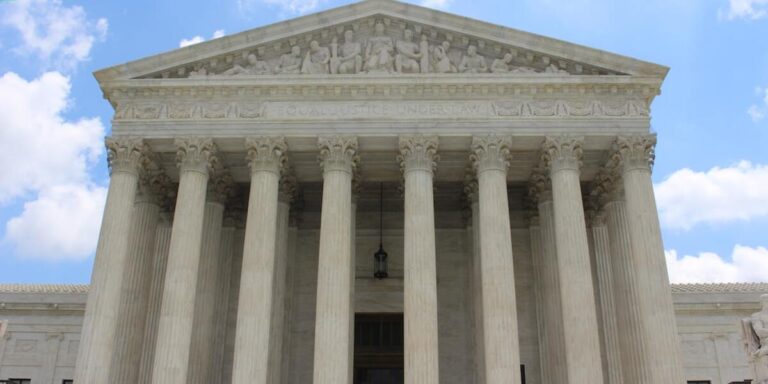Does every will have to be probated in NJ?
When it comes to understanding the probate process in New Jersey, many people are unsure of what is required. This blog post will answer the question: Does every will have to be probated in NJ? The information provided here can help those who may need a Probate Lawyer Hackensack NJ understand their options and make an informed decision about how best to proceed with estate planning.
Probating a Will means that it must go through court proceedings so that its validity can be determined by a judge or other legal authority. It also ensures that any debts owed by the deceased person’s estate are paid off before assets are distributed according to his/her wishes as stated in the Will. In some cases, there may not even be enough money left after all expenses and taxes have been taken care of for heirs listed on the document; however, this does not necessarily mean they cannot receive anything from their loved one’s estate – certain laws allow them access if no valid Last Will exists at all!
What is Probate and How Does it Work in New Jersey?
Probate is the legal process of administering a deceased person’s estate. This includes collecting and distributing assets, paying off debts or taxes owed by the decedent, and ensuring that all beneficiaries receive their inheritances in accordance with state law. In New Jersey, probate laws are governed by Title 3B of the New Jersey Statutes Annotated (NJSA). The NJSA sets forth procedures for filing an application to open an estate administration as well as deadlines for completing various tasks related to settling estates such as notifying creditors and making distributions to heirs.
A Hackensack probate lawyer can help you navigate this complex area of law if you have been appointed executor or administrator of someone’s will or trust in Bergen County, NJ. They can provide guidance on how best to manage any disputes between family members over distribution rights; advise on asset valuation issues; prepare documents required under court rules including inventories and accountings; assist with tax filings associated with inheritance transfers; represent your interests during hearings before judges overseeing contested matters involving wills & trusts ;and more generally ensure compliance throughout every step along the way so that everything goes smoothly when it comes time for final approval from Probate Court Judge who must sign-off at end stage proceedings .
Understanding the Requirements for a Will to be Probatable in NJ
Probate is the legal process of validating a will in New Jersey. In order for a will to be probatable, it must meet certain requirements under state law. The most important requirement is that the testator (the person making the will) was at least 18 years old and had testamentary capacity when they made their last Will or Codicil. Testamentary capacity means having sufficient mental ability to understand what property one owns, who should receive it upon death, and how those gifts are distributed among beneficiaries listed in the Will. Additionally, all Wills must be signed by two witnesses who were present during signing; however if these criteria cannot be met due to physical disability then only one witness may sign as long as there’s an affidavit from another individual confirming this fact along with other details about execution of said document such as date/time etc.. Furthermore any changes made after original signing require either being witnessed again or attached via codicils which need notarization prior filing them with Surrogates Court located within county where decedent resided at time of passing away . Lastly anyone can challenge validity of said documents before court ,so its best practice seek help from experienced Probate Lawyer Hackensack NJ familiarized both with local laws & regulations plus specific nuances associated each case thus ensuring smooth transition estate administration without unexpected delays nor complications
Pros and Cons of Going Through Probate Court Processes in NJ
Probate court processes in New Jersey can be a complex and lengthy process. Hiring an experienced probate lawyer from Hackensack, NJ is the best way to ensure that your estate’s affairs are handled properly. An attorney who specializes in this area of law will have extensive knowledge about how to navigate through all of the necessary paperwork, deadlines, legal requirements and procedures involved with settling an estate within the state. The pros include having access to professional advice on any matters related to wills or trusts as well as assistance with filing taxes associated with inheritance laws; while cons may involve additional costs for hiring such services which could add up quickly if not managed correctly. It’s important for anyone considering going through probate court proceedings in New Jersey understand both sides before making their decision so they can make sure they’re getting what’s best for them and their family members during this difficult time period
When Do You Need an Experienced Probate Lawyer In Hackensack, NJ?
When it comes to estate planning, probate and other legal matters in Hackensack, NJ having an experienced lawyer on your side is essential. Probate lawyers are knowledgeable about the laws surrounding wills and trusts as well as inheritance tax issues that can arise when a loved one passes away. An attorney with experience in this area of law will be able to guide you through the process from start to finish while protecting your interests along the way. In addition, they can help ensure that all assets are properly distributed according to state regulations so there won’t be any surprises down the road for family members or heirs who may have been left out of earlier arrangements. Furthermore, if disputes arise between parties involved in a case then an experienced probate lawyer will know how best handle them by providing sound advice based upon their knowledge of applicable statutes and precedents set forth by courts throughout New Jersey’s judicial system. By taking advantage of these services provided by a qualified professional you’ll gain peace-of-mind knowing that everything has been taken care off correctly without worrying about potential problems arising later due unforeseen circumstances related directly or indirectly connected with administering someone else’s estate after death
Frequently Asked Question
-
Does every will have to be probated in NJ?
-
Do you need a probate attorney in NJ?
-
Can you avoid probate in New Jersey?
-
How much is probate in Bergen County?
-
Who inherits when there is no will in NJ?
-
Is probate Required if I have power of attorney?
New Jersey is the only state that must probate most estates. There are some exceptions. Probate is not necessary if the estate is part a living trust. All assets that have a named beneficiary will be automatically received without probate.
An Executor must retain an experienced probate lawyer to help them navigate through the complicated probate process. Probate procedures can be time-sensitive and complex. To probate a Will, an Executor should wait no less than ten (10) calendar days after the death.
You can create a living trust in New Jersey to prevent probate of virtually all assets you have, including real estate, bank accounts and vehicles. A trust document, which is similar to a will, must be created. It names someone who will take over the trustee role after you die (called a successor trustee).
Bergen County allows anyone to probate a deceased person’s Last Will & Testament at the Surrogate’s Court. This can be done with or without the help of a lawyer and takes less than an hour. An appointment is required. You will be assisted by the Surrogate’s Court in finalizing the probate process. It usually costs between $100 and $200.
New Jersey law decides who will inherit the estate of someone who dies without leaving a will. The kinship (or bloodline) determines who inherits the estate. If there is no family connection, the estate becomes ineligible and all assets go to New Jersey.
The fact you were granted power of attorney does not affect the decision to have probate. This will hinge on the assets that the deceased had and whether they were solely or jointly owned.
Conclusion
It is important to remember that every will in New Jersey must be probated. It can be a complex process, so it’s best to consult with an experienced probate lawyer from Hackensack, NJ who understands the nuances of state law and estate planning. When looking for a reliable attorney, do your research! Check out trusted links and reviews on our website before making any decisions. With the right guidance you’ll have peace of mind knowing that your loved one’s wishes are being honored properly under New Jersey laws.




